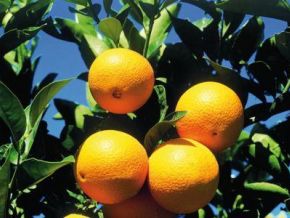Egypt’s citrus exports dropped to 2.1 million tons, down 12% year-on-year
Industrial processors increased orange consumption, tightening export supply
Rising domestic prices made Egyptian oranges less competitive in Europe
Egypt’s citrus exports fell 12% in the 2024/2025 season as higher industrial demand for orange concentrate diverted large volumes of fruit from export markets, according to data reported by Freshplaza on November 5.
Industry players said the contraction was mainly due to the rapid growth of orange-processing plants producing juice and concentrate, which are competing directly with exporters for fresh fruit.
“The 240,000-ton decline in exported oranges is directly linked to fresh orange consumption by concentrate factories,” said Eslam Gelila, an Egyptian exporter, in an interview with Freshplaza. “Factory demand far exceeded that gap, and export volumes would have fallen further without a noticeable improvement in fruit quality.”
The US Department of Agriculture (USDA) had already projected a 50% increase in industrial orange use, driven by the rise of new plants and favorable international prices for orange concentrate.
This shift has had a domino effect on export dynamics. Reduced supply pushed domestic fruit prices up by 60–70% over the previous season, and even doubled in March 2025, according to Gelila. Egyptian oranges, once prized for their affordability, became more expensive than Spanish oranges on European shelves for the first time.
The price surge cost Egypt its leadership in the EU orange market. Eurostat data shows that European imports of Egyptian oranges fell 30% during the 2024/2025 campaign.
Despite the setback, Egypt’s citrus sector remains optimistic. Exporters expect a rebound next season if international concentrate prices stabilize, easing pressure on fresh orange supplies and restoring competitiveness abroad.
Stéphanas Assocle

